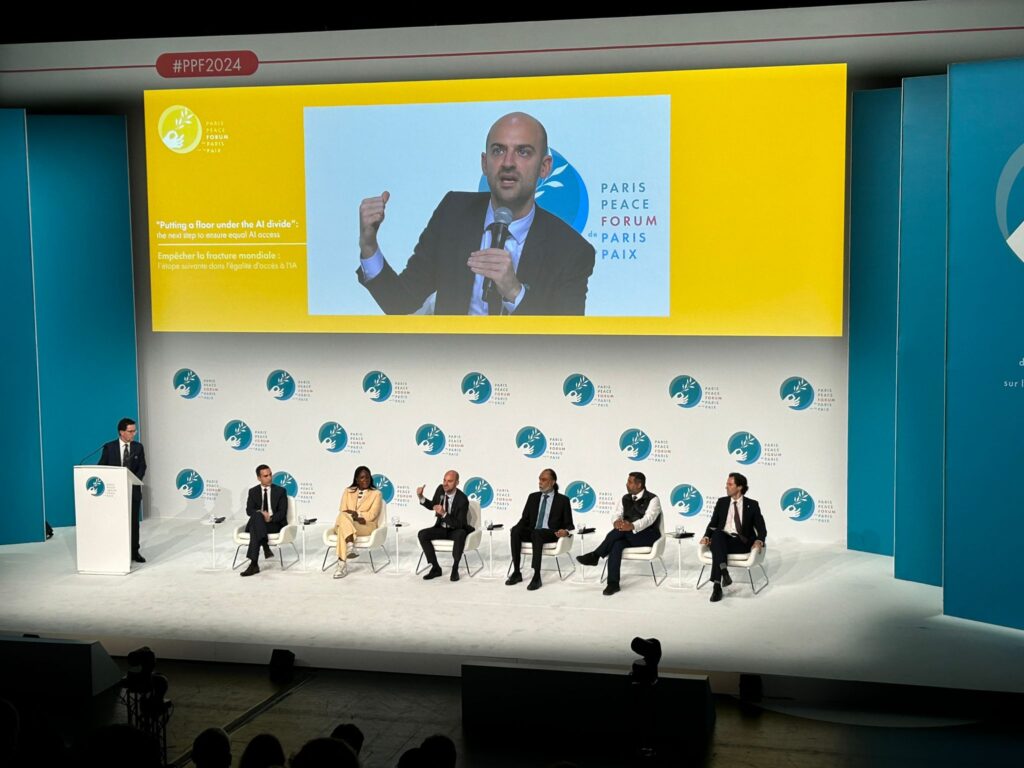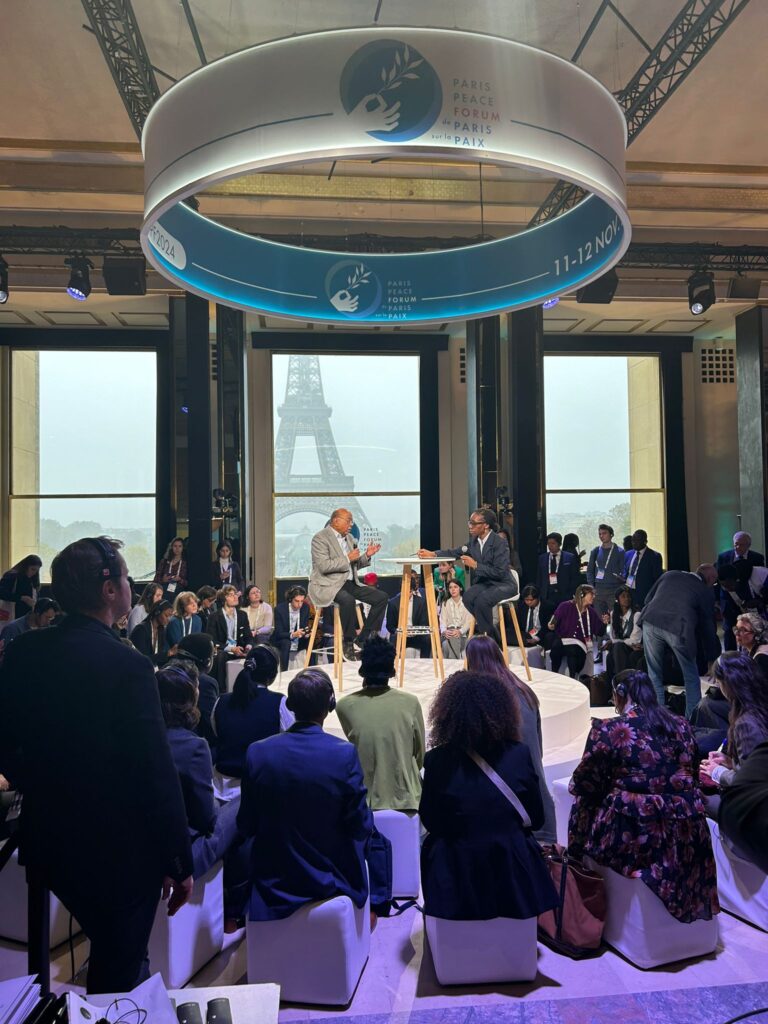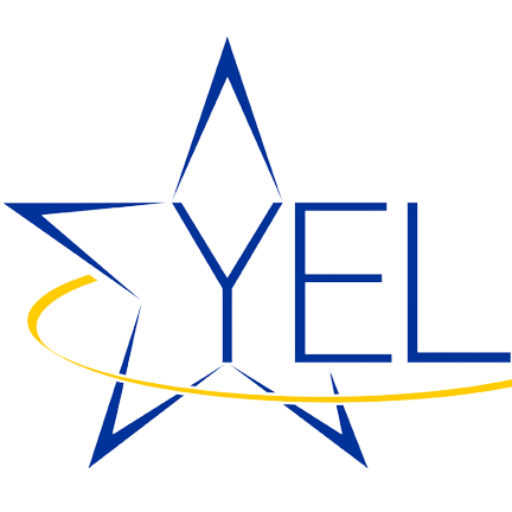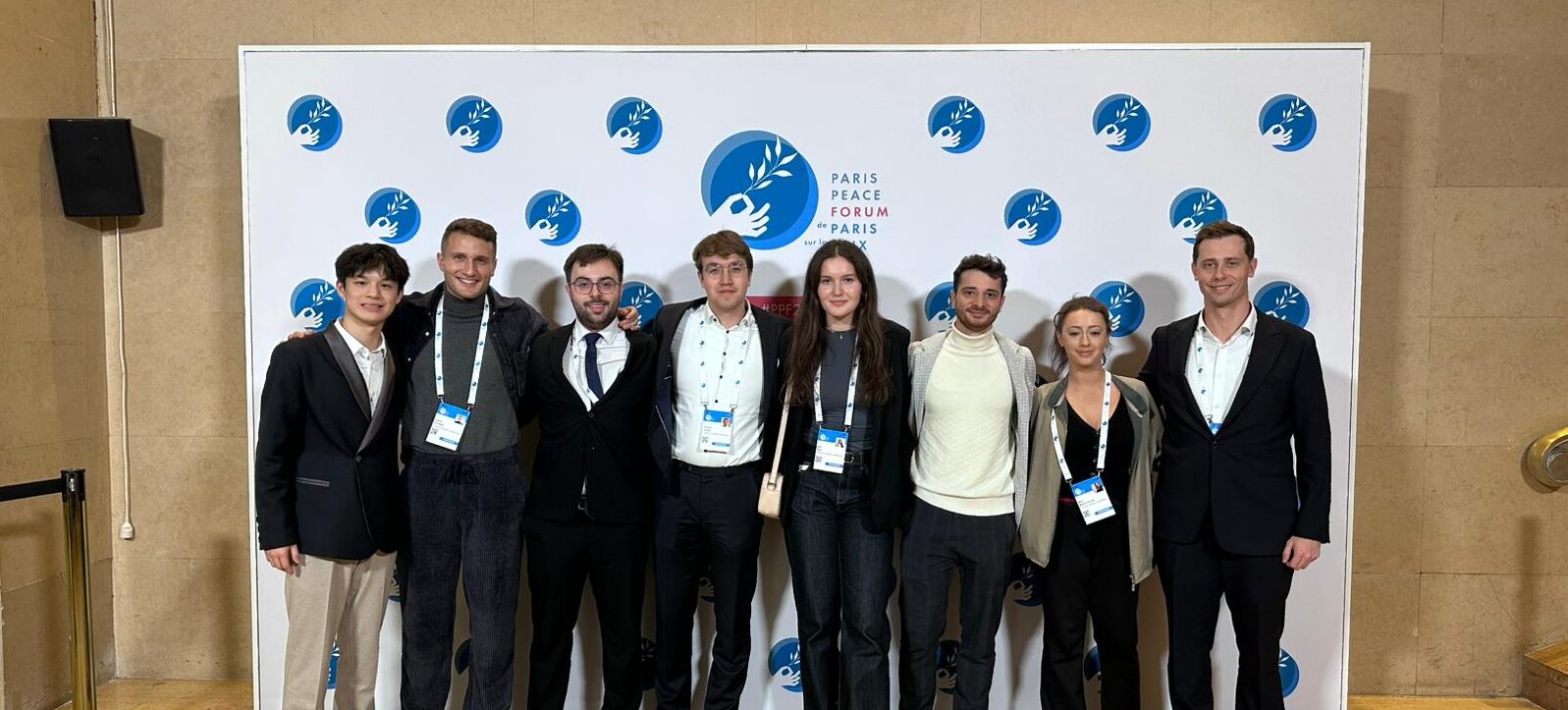written by Vincent Tadday

Attending the 2024 Paris Peace Forum was an extraordinary experience, providing both a stage and a lens through which to examine some of the most pressing challenges facing global governance today. Held at the historic Palais de Chaillot and other venues across Paris, this year’s Forum, themed “Wanted: A Functioning Global Order,” resonated deeply in a world increasingly marked by fragmentation, mistrust and systemic instability. The Paris Peace Forum brought together political leaders, visionaries and international experts to discuss solutions for an era marked by great power rivalries and emerging transnational challenges. Young European Leadership (YEL) was honored to send a delegation of team members and Y7 and Y20 delegates to the conference to participate in public debates and background talks on the current state of the international order over the two days.
The Erosion of Trust in Global Institutions
Discussions at the Forum highlighted how the current breakdown of trust within international institutions, such as the United Nations and the G20, has weakened their ability to address global crises. One panel attended explored the role of the United States in shaping international systems, a topic that remains crucial given the recent election and the far-reaching implications of a second Trump presidency. Speakers discussed the changing dynamics of US leadership, with some reflecting on how its evolving trade policies and disengagement from multilateral forums have left gaps that other powers, particularly China, are eager to fill. The recurring theme was clear: the international order cannot depend on the leadership of a single state, especially when that leadership is increasingly contested.
Competing Visions of Global Leadership
In contrast, another session explored the prospect of a global system more centered on the United States’ biggest competitor, China. Discussions highlighted the complex and often ambivalent ways in which nations, particularly in the Global South and Southeast Asia, are navigating Beijing’s growing influence. China’s emphasis on multipolarity and respect for sovereignty resonated with some participants, but others highlighted concerns about accountability and the risks of geopolitical dependence. The debate was an illuminating exploration of how different models of governance compete for legitimacy in today’s fractured world.

Confronting Humanitarian Failures
Perhaps the most sobering session focused on the ongoing conflict in Sudan. Philanthropist Mo Ibrahim and Comfort Ero, President of the International Crisis Group, described the dire humanitarian crisis as not just a regional emergency, but a global failure of leadership and coordination. The obstacles posed by a fragmented international community–where the United Nations Security Council remains paralyzed by divisions–are a stark reminder of the urgent need to reform global governance structures.

Inspiring Leadership and Dialogue
In the midst of these weighty discussions, one of the most inspiring moments was meeting Ángel Gurría, President of the Paris Peace Forum and former Secretary-General of the OECD. Gurría’s career is a testament to the value of multilateralism. Under his leadership, the OECD expanded its engagement with emerging economies and international forums such as the G7 and G20, setting a standard for inclusiveness.
Beyond the panels and keynote speeches, the Forum was also a space for networking. Engaging with fellow Young European Leadership delegates, as well as youth representatives from France, China, India and the African Union, was a powerful reminder of the importance of intergenerational dialogue. These young leaders brought fresh perspectives to the challenges we face, from climate governance to digital regulation, and highlighted the need to include diverse voices in policy-making.
Reflecting on the Forum, a number of key lessons stand out. First, the importance of restoring confidence in international institutions cannot be overstated. The erosion of trust has not only paralyzed decision-making, but also undermined the legitimacy of institutions designed to ensure global stability. Second, the rise of new centers of power, such as China and coalitions of middle powers, presents both challenges and opportunities. These dynamics require innovative approaches to diplomacy that prioritize cooperation over confrontation. Finally, the role of young people in shaping the future cannot be underestimated. Their active participation in forums such as this is essential to ensure that policies are forward-looking and equitable.
Looking Ahead
While the challenges discussed over two days are immense, the commitment to dialogue, even among parties with divergent interests, offers a glimmer of hope. The 2024 Paris Peace Forum was a powerful reminder that global governance, while imperfect, is a shared responsibility–and one that requires unwavering effort to uphold. Participating in this year’s Forum was a deeply enriching experience that reaffirmed our commitment to addressing global challenges. The event was not only about analyzing the state of the world, but also about imagining what it could become through collective action. As we move forward, the lessons learned here will be invaluable in navigating the complexities of our interconnected yet divided world.


